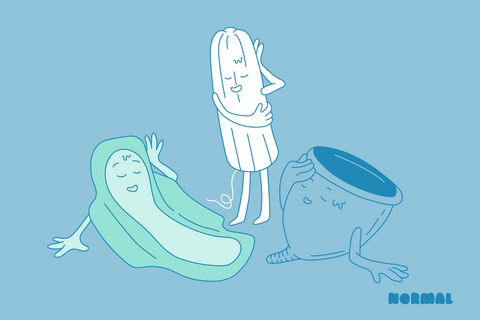Everyone experiences stress to some degree.
Whether it’s butting heads with your boss, dealing with a friendship falling-out, or or worrying about family dynamics, stress is something we’re all familiar with.
And when you factor in things like the rising cost of living, the effects of climate change, and the general vibe out there right now, it’s no wonder that we can all feel a bit on-edge.
While stress is a normal part of life, sometimes too much stress can deeply affect us. Our mental health can suffer, our healthy habits can fall to the side (goodbye, morning gym sesh and evening walks), and even our sex life can be impacted.
Fortunately, there are a few things we can do to combat stress and start getting our lives and our sexual selves back to a more comfortable place.
Basically:
- When we’re stressed, it can be harder for us to make time for desire and intimacy
- Reducing stress can benefit your health overall, not just in the bedroom
- If you can’t reduce stress, work on redefining intimacy
Never be afraid to ask for help
We want to kick off this article by reminding you that if you’re feeling stressed, down, upset, or sad, there’s always help available. Please reach out to a mental health service near you, or call Lifeline on 13 11 14.
How does stress impact our sex lives?
It makes sense that if you’ve had a stressful day or even a stressful week, sex might not be the first thing on your mind. And that’s understandable—it’s very normal to not have sex at the top of your list of wants after a tough day.
But if you’re experiencing a high amount of stress over a long period of time—say, weeks, months, or even years—it can affect your desire for sex and intimacy.
Let’s look at how that works, and why it happens.
Our in-house sex and relationship practitioner Georgia Grace explains that when we experience stress, our bodies operate in one of two states: hyper-arousal or hypo-arousal. In a state of hyper-arousal, we might feel stressed or anxious, like our heart is racing and like we’re ready to flee a situation—or fight. In a state of hypo-arousal, we can shut down, feeling numbed to what’s going on around us.
Neither of these states are harmful to be in for a short period of time (they are actually really useful functions to keep us safe from danger), but over a longer period of time Georgia explains that our nervous system is so focused on dealing with what it perceives as threats that it’s difficult to make space for things like relaxation, desire, and intimacy.
There have been some interesting studies that deal with stress and sex, too. A 2003 study in the scientific journal Urological Research found that increased levels of cortisol—a hormone often released by the body during stressful situations—can make it difficult for cisgender men to experience arousal and erection, and a 2021 study found that people experiencing stress during the COVID-19 pandemic also experienced lower levels of sexual desire. (It is important to know that this study had not been peer reviewed at the time we read it.)
In short, stress and sex are not good friends.
So what can we do about it?
Work on reducing stress
We know, we know—easier said than done, right?
But if you’ve been looking for a sign to finally cut back on those working hours, have a talk with your housemates or partner about spreading out the chores more easily, or put your phone on silent whenever your mother-in-law calls, consider this to be it.
Yes, you may find that you have more space for desire without so much stress, but you might also notice an improvement in your overall health and outlook on life. And we think that’s something worth working for.
Still, we know it’s not always possible to simply click your fingers and be less stressed.
Make some positive, on-going changes
If you’re not able to remove stress from your life immediately, we recommend making a few changes in the way you approach not only stress, but desire and intimacy.
- Talk to your partner, if you have one, about how you’re feeling. If you can think of a way they might be able to support you during a stressful time, let them know!
- Consider the role dating plays in your life if you’re single or in a non-monogamous relationship. Does dating and meeting new people make you feel happy, energized, and lively? Or is it something that leaves you feeling drained and tired? If dating doesn’t make you feel good, it might be time to put it on the backburner.
- Daily stress management practices, it’s not going to change overnight so practicing a regular and ongoing stress management plan is vital - this looks different for everyone so it may be worth thinking about what would work for you exercise, rest, self pleasure, a lunchtime walk, getting your feet on the grass or face in some sun, breath work, meditation, moving to music…
- Think about what forms of intimacy would feel good, and try to make space for them. If sex isn’t something that you desire right now, how about a massage? A make-out sesh? A snuggle on the couch in front of a trashy movie? Physical intimacy is about more than just orgasms and penetrative sex, so focus on the parts of it that you feel more open to.







